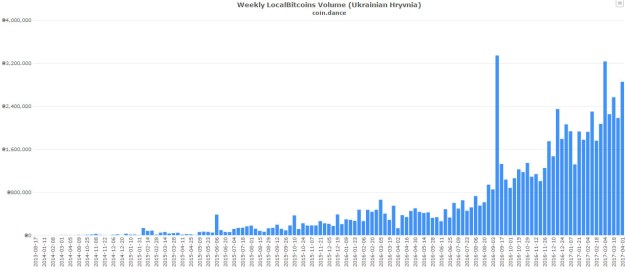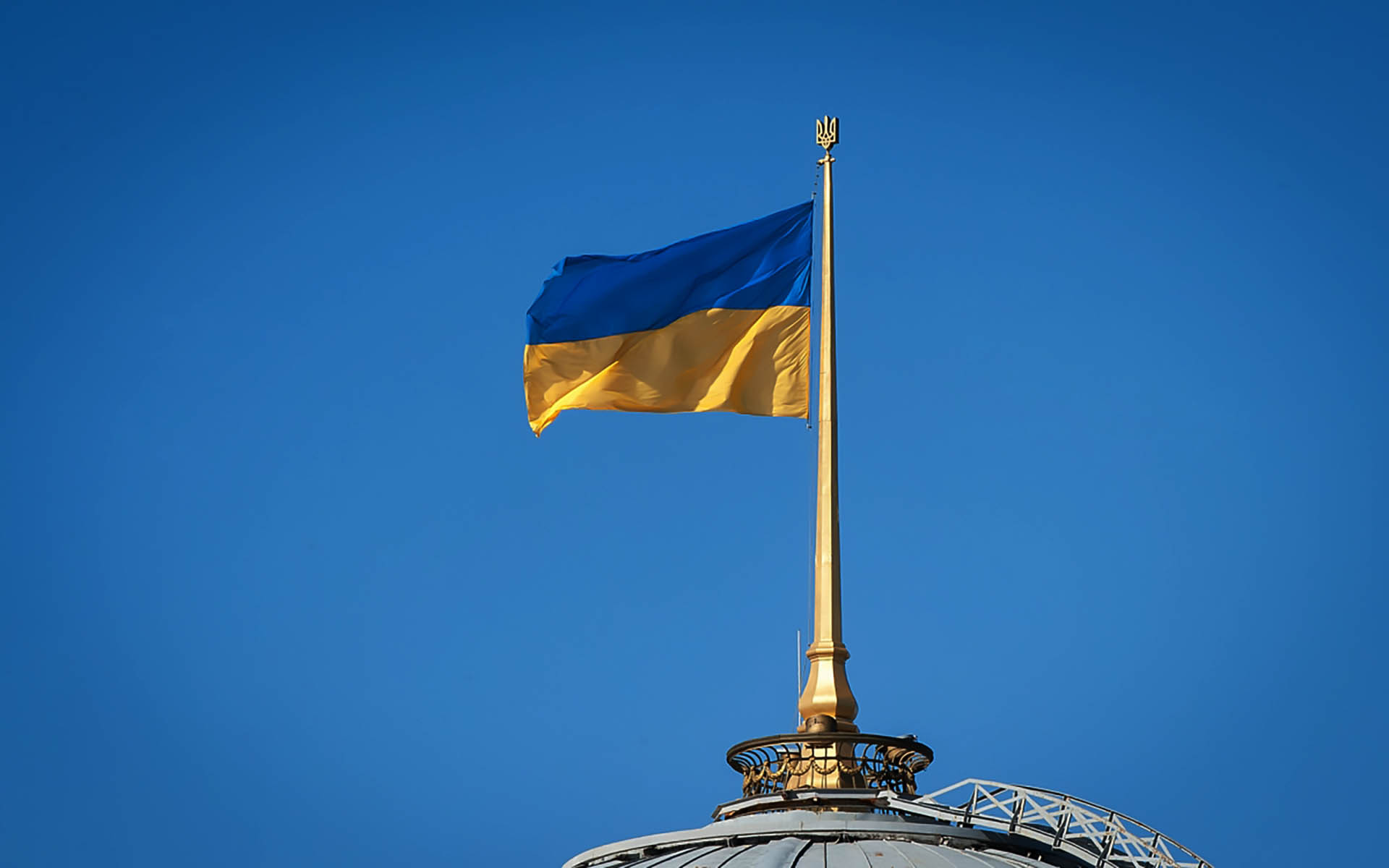
Ukraine’s Bitcoin investment figures have shot up 500% in a single year, according to Bitcoin Ukraine founder Andrey Dubetskiy.
Dubetskiy: Growth Reasons ‘Same Throughout The World’
The figures, which Dubetskiy revealed in comments to local news resource Payspace, represent growth from 500,000 hryvnia ($18,400) to 2.5 million ($92,000) hryvnia per week through 2016.
“The reasons behind the growth are the same as those throughout the world,” he told the publication.
Specifically, distrust of national currencies, an unstable economy, asset movement restrictions, the shadow economy, little choice and regulation of financial instruments, demand for digital and global financial instruments, growth potential for Bitcoin’s price as an investment and many others.
Ukraine has become an active participant in both Blockchain studies and Bitcoin as a consumer asset.
Despite its recent turbulent political and economic history, cryptocurrency usage has been fostered – or at least left untouched by premature regulation – and continues to serve as an investment alternative to the hryvnia, which since 2014 has lost two thirds of its value.

Localbitcoins volumes in Ukraine have also seen their best times ever in recent months, with weekly trading edging towards new highs each week.
“Considering the general upward trend in Bitcoin’s exchange rate, the majority of customers are buying in order to profit from speculative operations, while some investors transfer a part of their assets to Bitcoin,” Mikhael Chobanyan, CEO of local exchange Kuna.io, added.
Weak Economy + Bank Crisis = Blockchain
In a bid to bail out its creaking economic infrastructure, Ukraine was forced to nationalize main lender Privatbank last December amid concerns “panic” would arise if things were left as is.
“Other banks would not be getting their loans back from PrivatBank, a series of bankruptcies would begin, and there would be panic,” Oleksandr Savchenko, head of Kyiv’s International Institute of Business, commented on the situation prior to the move being finalized.

On the Blockchain front meanwhile, a scheme involving the Central Bank to introduce the technology to governmental processes appears to be gaining momentum.
Q3 last year saw publication of a roadmap from the National Bank of Ukraine for its Cashless Economy scheme, which set out ways and deadlines for use of Blockchain in cases such as payments.
“The [National Bank of Ukraine (NBU)] Board has approved and presented a roadmap for Cashless Economy, which will use Blockchain technology in Ukraine for the first time,” spokesman Konstantin Yarmolenko wrote on Facebook at the time in a post subsequently removed.
Elsewhere, Ukraine was the first country in the world to launch sanctioned Bitcoin futures trading on its national exchange. Investor interest was also given as the main motivation for the move, which authorities announced in the midst of the Privatbank debacle.
What do you think about Ukraine’s Bitcoin growth? Are you there and seeing changes? Let us know in the comments below!
Images courtesy of Coin Dance, Shutterstock


















